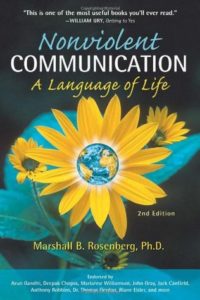 Like many Americans all across the country, I voted during the mid-term election. It’s been a heated process, with lawsuits and recounts and some have highlighted the terrible mudslinging and attack campaigns from both major parties and their supporters against “the others.”
Like many Americans all across the country, I voted during the mid-term election. It’s been a heated process, with lawsuits and recounts and some have highlighted the terrible mudslinging and attack campaigns from both major parties and their supporters against “the others.”
As I stood in line I looked around at everyone there, from the first-time voter in front of me whose dad was explaining how it will go, to the elderly showing up for another celebration of their freedom, and the many volunteers who were helping us all exercise our rights in this great country.
Many voting precincts are held in schools. Ours was in a church. I hadn’t been in a church in a long time. Don’t get me wrong, I think faith and community are beautiful things, and I’ve tried my hand at quite a few different religious practices, but that’s another story. As I moved closer to my voting booth I couldn’t help but think about how similar we all were, and how ironic it was that some were there to “stick it to” the other side.
These two things, religion and politics, are often dictated to people when they’re young and they’re indoctrinated into thinking that their way is the best way, or even the only way. We don’t choose where we’re born or who our family members are, but we do have the ability to look at the preferences and biases that we hold on to so dearly and reevaluate their validity as adults. In order to do this, we must have the desire to understand other people’s viewpoints and respect their position.
How much of what we believe today is actually comprised of the thoughts and messages of other people growing up? Just like you, he/she/they couldn’t help who they were born to and how they were indoctrinated. What if you were born on a farm instead of a city, or in a poor country instead of the United States? What if you were born a Hindu instead of a Christian, or a Buddhist instead of a Muslim?
“Those people” are just like you and me. They are trying to do the best they can with what they have and know. Some of the things they support or oppose are specific and dear to their circumstances, just as yours might be. This doesn’t necessarily make their views or your views wrong because they may differ from someone else’s. Understanding does require some acceptance of what is, as well as an intention of wanting to know. Unfortunately, when we are only willing to hold on tightly to the beliefs and systems we were raised in or heavily influenced by during an impressionable point in life, we also continue to create separation.
If we are confident and comfortable in our beliefs, we should be willing to hear someone else’s. Even if we continue to disagree, at least we may become more tolerant and accepting and feel less threatened.
Here is a quote from a great book that is often recommended for ending conflict, “As we’ve seen, all criticism, attack, insults, and judgments vanish when we focus attention on hearing the feelings and needs behind a message. The more we practice in this way, the more we realize a simple truth: behind all those messages we’ve allowed ourselves to be intimidated by are just individuals with unmet needs appealing to us to contribute to their well-being. When we receive messages with this awareness, we never feel dehumanized by what others have to say to us. We only feel dehumanized when we get trapped in derogatory images of other people or thoughts of wrongness about ourselves.” ― Marshall B. Rosenberg, Nonviolent Communication: A Language of Life: Life-Changing Tools for Healthy Relationships
It is perfectly okay for other people to have their beliefs and preferences just as much as it is yours. It is also okay to question those we have been brought up in and view others to see if something else makes more sense for the values we espouse.